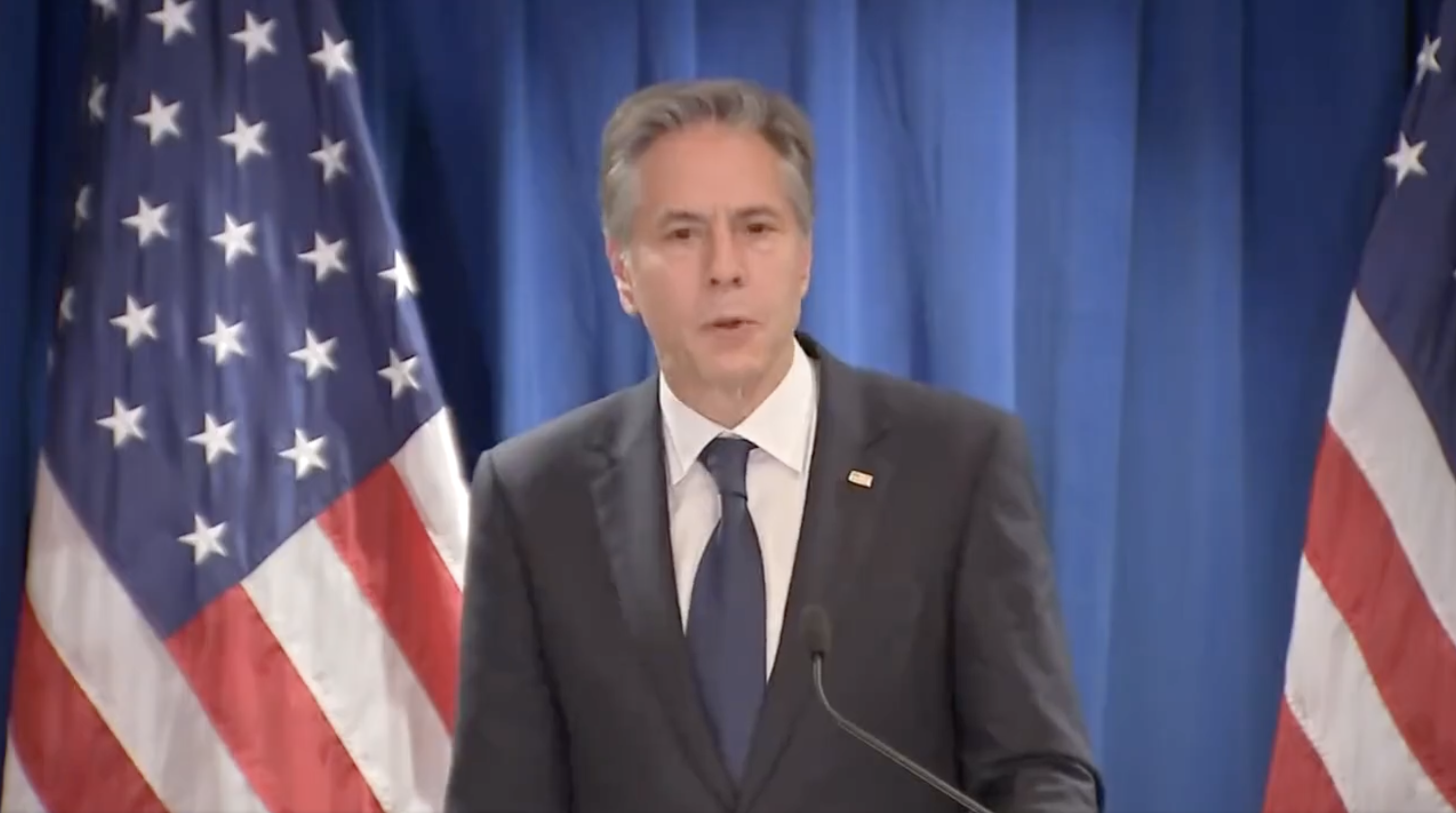Politics
WATCH: Blinken Says ‘We Do Not Support Taiwan Independence’ During Beijing Press Conference

Secretary of State Anthony Blinken met with Chinese President Xi Jinping on Monday and declared shortly thereafter that the United States “[does] not support Taiwan independence,” a statement that is sure to be interpreted by Beijing as a lack of interest by the U.S. in defending the island nation should China choose to invade.
Blinken’s comment stands in stark contrast to those made just months ago by President Joe Biden who said the United States would come to Taiwan’s aid if the country suffered an “unprecedented attack” by China.
“We do not support Taiwan independence. We remain opposed to any unilateral changes to the status quo by either side. We continue to expect a peaceful resolution,” said Blinken.
WATCH:
The comments by Biden’s Secretary of State came shortly after a meeting with Jinping which Blinken called “robust” though he was unable to secure military-to-military contact between government officials, something the U.S. considers crucial to avoiding miscalculation and conflict. Both sides expressed satisfaction with the outcome of Monday’s talks though did not point to specific policy agreements or areas of progress. Among the issues hampering China-U.S. relations are human rights abuses in Hong Kong, Russia’s war with Ukraine, and China’s military assertiveness in the South China Sea.
Taiwan, a self-governing island roughly 100 miles from mainland China, has long been seen by Jinping as part of the Chinese empire, though U.S. defense officials claim the communist leader also recognizes the high cost an invasion would pose for his nation. Former Pentagon officials have pointed to recent defense agreements reached between the U.S. and Japan, Australia, and the Philippines as responsible for deterring China from taking military aggression.
The meeting between both superpowers came just months after President Biden ordered the shooting down of a Chinese spy balloon that infiltrated U.S. airspace and gathered military secrets during its time in flight. The president had to be convinced by advisors not to call Xinping and apologize for ordering the balloon’s termination. More recently, the Biden White House has placed the blame on former President Donald Trump over the two-year presence of a Chinese military base in Cuba.

